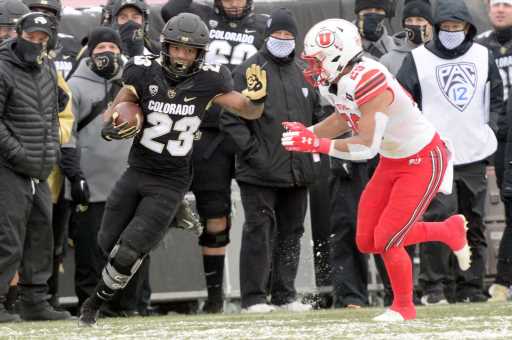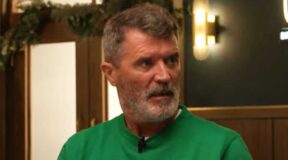Newly hired Pac-12 commissioner George Kliavkoff doesn’t start working for the conference until July 1, so it’s understandable that he doesn’t have all the answers right now.
During his introductory press conference on Thursday, however, there was one question in particular that he was ready to field.
“How do you fix football on the field?” a reporter asked.
Currently the president of entertainment and sports for MGM Resorts International, Kliavkoff smiled and didn’t hesitate in his response.
“As you can imagine, I anticipated that question,” he said. “I’m putting on my reading glasses because I wrote down a few notes because there’s a lot to talk about here.”
Aside from a financial boost through a new media rights deal in the next few years, the Pac-12 needs nothing more than success in football.
Last season, the Pac-12 basically took itself out of the conversation for the four-team College Football Playoff by starting its COVID-19 pandemic-shortened season later than anyone else.
Yet, even in that shortened season, the Pac-12 didn’t have any teams worthy of consideration. USC flirted with CFP hopes during a 5-0 regular season, then lost to two-loss Oregon in the conference title game. USC (No. 17) and Oregon (No. 25) were the only Pac-12 teams in the final Associated Press rankings.
The Pac-12’s struggle for national relevancy in football precedes the COVID-19 pandemic, however.
The Pac-12 hasn’t had a team reach the CFP since the 2016 season, when Washington was rolled by Alabama, 24-7. The only other Pac-12 team to get there in the seven-year history of the CFP was Oregon, which beat Florida State in the 2014 semifinals before losing to Ohio State title in the title game.
Every other Power 5 conference has at least four CFP appearances, and they’ve all been there in the last two years.
USC was the last Pac-12 team to win a national title, with back-to-back championships in 2003-04 (the second of which was vacated because of NCAA sanctions).
Kliavkoff expressed his belief that the Pac-12 can compete for and win a national title in football. It wasn’t a surprise to hear him say that, but he also added some thoughts on how to get to the point of title contention.
“My work on football will begin with meetings with the (athletic directors) and coaches, and with my new colleagues at the conference office,” he said. “I believe personally the solution to elevating Pac-12 football is a combination of addressing structural issues and a more focused approach on recruiting.”
One of the structural issues is the CFP and Kliavkoff made it clear he is in favor of expansion – although he didn’t offer a suggested expansion plan.
“I believe that it’s not good for college football, and for the vast majority of college football fans when 20 of the 28 CFP bids – 71 percent – go to just four schools,” he said, referring to Alabama, Clemson, Ohio State and Oklahoma.
He added that in every other sport, 18-to-25 percent of teams have a chance to play for a championship in the postseason. In FBS football, that number is only 3.1 percent.
“We just need chances,” he said.
Kliavkoff also stated that the conference needs to review its football scheduling, game times and other decisions.
“Everything is up for review to make us more competitive,” he said.
That includes recruiting, which is extremely competitive within the conference but needs to improve across the board in the Pac-12.
“We’re going to invest in great standardized technology at the conference level to share with the teams to help the schools recruit and be more competitive on the field,” Kliavkoff said. “I think there are lessons to be learned from public and private institutions that make their lifeblood on being able to retain and attract great talent. I think we have to learn some of these lessons, particularly perhaps from our Silicon Valley friends.
“We need to make sure that high school athletes understand the lifetime value of a Pac-12 education. We need to be more aggressive about teaching the legacy of the Pac-12 as the conference of champions. At the conference level, we will invest to give Pac-12 athletes, football players and others, an opportunity to create a bigger social platform. … Finally, we will be a proponent of consistent and a fair approach to name, image and likeness legislation and we believe that’s a competitive advantage for the Pac-12 because of the markets we play in and the opportunity that some athletes will have to star immediately.”
Although not yet on the job, Kliavkoff clearly understands the issues surrounding Pac-12 football. Whether he can fix them remains to be seen, but making football a priority is already a good start for the incoming commissioner.
Source: Read Full Article






